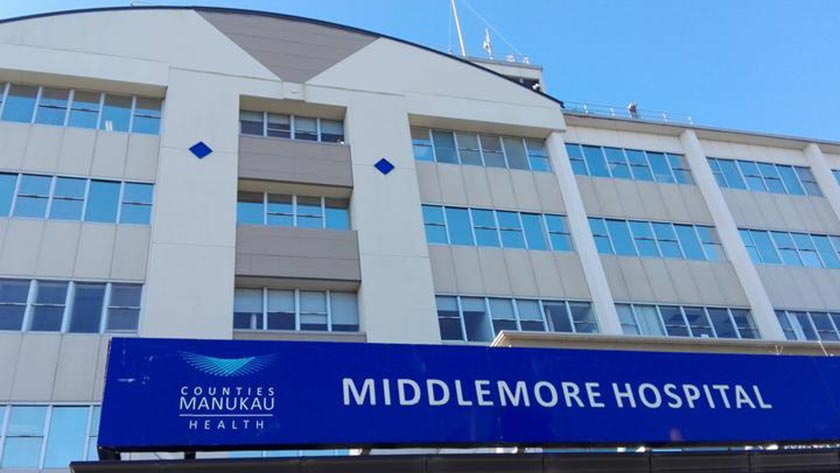
The policy allowed visitors to the hospital while the community was in level four lockdown with a poorly contained strain of COVID-19 Delta and growing numbers of cases in the community.
This was against a backdrop of level four restrictions outside the hospital where the “stay at home” order prevented people from seeing family and friends who were not in their bubble.
Screening at hospital entry points to the hospital was based on the February lockdown with questions about overseas travel that were no longer relevant, but questions about potential locations of interest not initially included.
NZNO members and staff worked hard to try and address these health and safety concerns within the DHB, also raised by patients.
Members were reporting that in shared patient spaces, there were sometimes eight or more visitors – many from different ‘bubbles’.
NZNO only escalated the matter to the Employment Relations Authority (ERA) when all other avenues were exhausted, with no improvement or indeed action in response.
Having declined to meet with NZNO, the DHB was directed to mediation by the ERA. This led to the DHB visitors’ policy being strengthened, in a win for NZNO members and patients alike.
NZNO is now working to address guidance on hospital visitors nationally, to ensure it adequately refers to COVID-19 cases and alert levels in the community, not just the internal operational capacity of hospitals, as determined by a traffic light system.
Not a blanket ban
To be clear, NZNO has not at any time advocated for a blanket ban on visiting, appreciating that there is a great deal of evidence that visitors can aid recovery and provide cultural support.
However, we are currently in a pandemic and many things previously considered rights have been impinged in order to support efforts by the “team of five million” to control and hopefully eradicate, or at least minimise the effects of, COVID-19.
ADHB visitors’ policy was not consistent with the other DHBs in the greater Auckland region and around the country. Their guidelines outlined very strict limitations while allowing appropriate compassionate visiting and cultural support, as well as supporting families at the birth of a baby, or if a baby or child were unwell in hospital.
There have been concerns with COVID-positive patients attending hospitals during the current outbreak. Many have been asymptomatic and seeking other care, including maternity. Some were not confirmed cases until after admission.
There have also been instances of COVID-positive visitors entering hospitals in the greater Auckland area, putting staff and patients at risk.
After North Shore Hospital patients were found to be COVID-positive in August, 30 staff were considered direct contacts and another 120 potential contacts. In addition, the emergency department was closed for a period.

A recent incident at Middlemore Hospital resulted in 29 staff being stood down as close contacts of a COVID-positive patient and the closure of ward to further admissions. A subsequent event at Middlemore’s emergency department has seen over 60 patients being potentially exposed, many of whom had already been discharged.
Patient flow
The outbreak creates major difficulties for DHBs in terms of managing the number of patients that may require admission to hospital, including intensive care units.
When staff are stood down as a result of exposure to COVID-19, significant strain is placed on DHBs’ ability to manage not only COVID-related admissions but also the general health needs of the population, which of course continue during a pandemic.
Nurse shortages
Such is the shortage of experienced critical care/trauma and cardiac nurses in Auckland, that Auckland’s three metro DHBs have requested nurses from other parts of New Zealand to assist, particularly at Auckland and Counties Manukau DHBs.
Subsequent requests have gone out for nurses with skills in primary care or who are Māori or Pasifika to support efforts to contain and manage the outbreak in the Auckland region, by testing, vaccination and care of those who are unwell.
Nurses are the backbone of COVID-19 management across all health sectors, from managed isolation/quarantine and border controls, through to testing, vaccination and the care of patients in communities and hospitals.
The workforce is a limited resource, which cannot withstand unnecessary risk that may require staff to be stood down.
NZNO has an obligation to support staff and patients to keep safe and to take steps to minimise risks wherever this is necessary.





